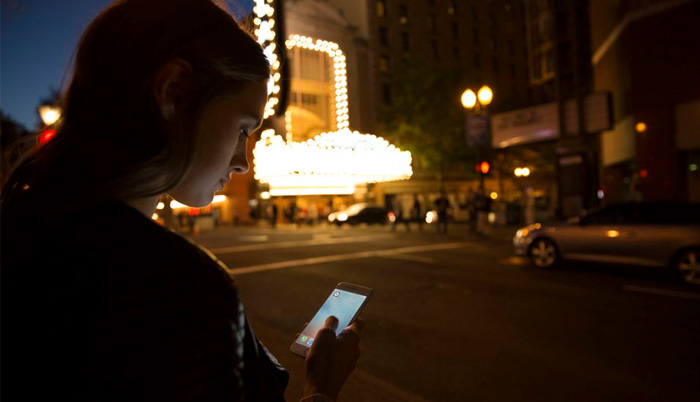![]() Home > Security & Privacy
Home > Security & Privacy
Uber Devises Secret Greyball Tool To Evade Officials

Uber uses a secretive tool called Greyball to identify unwanted users. Uber
![]() March 4th, 2017 | 10:52 AM |
March 4th, 2017 | 10:52 AM | ![]() 1061 views
1061 views
CNET.COM
In an effort to bypass local laws, the ride-hailing company created a tool that can identify and target individuals, including police.
Uber isn't always welcome in the cities where it operates. On more than one occasion, the ride-hailing company launched in a new locale only to have authorities say no way.
Well, Uber has a workaround for that pesky problem. It's a secretive tool called "Greyball" that Uber has used since 2014 to thwart authorities in cities where the service isn't yet legal but drivers are still picking up rides.
Greyball collects in-app data to identify and target certain individuals, like law enforcement officers. If those people try hailing an Uber, the app will either display that no cars are available or show a mock-up of the app with fake Uber cars.
The idea: ensure targeted individuals can't catch a ride.
"This program denies ride requests to fraudulent users who are violating our terms of service -- whether that's people aiming to physically harm drivers, competitors looking to disrupt our operations, or opponents who collude with officials on secret 'stings' meant to entrap drivers," an Uber spokeswoman wrote in an email.
In cities where Uber isn't legal, authorities sometimes put together sting operations in which they hire Ubers and then ticket drivers and impound cars. As part of the operations, police often make continuous attempts to hail Uber cars, which is how Greyball targets them.
Greyball, which was earlier reported by The New York Times, also identifies unwanted users by checking their credit card information, social media profiles and other online information.
Uber, which made its name by pairing passengers with drivers via an app, has a long history of pushing the bounds of the law. The company, now in 400 cities in more than 70 countries, often launched products and features before getting the required permits. That's when it seems to get itself in trouble, observers say.
"Uber is an incredibly disruptive cyber technology," said Kenneth Geers, former NSA analyst and senior research scientist for global cybersecurity firm Comodo. "So it's not surprising that it also skirts the boundaries of legality."
The San Francisco-based company didn't seek permission when it launched its ride-hailing service in San Francisco in 2010. Four months later it was hit with a "cease-and-desist" letter from the California Public Utility Commission and the San Francisco Municipal Transportation Agency. The same thing happened when the company launched its carpool service UberPool in 2014. And again when it rolled out its self-driving cars to passengers in San Francisco in December.
Uber CEO Travis Kalanick has said the company doesn't need to beg for forgiveness.
"There's been so much corruption and so much cronyism in the taxi industry and so much regulatory capture that if you ask for permission up front for something that's already legal, you'll never get it," he told the The Wall Street Journal in 2013.
Besides tracking local authorities, Uber says Greyball is also used to block competitors from seeing Uber cars and to keep drivers safe in situations like the taxi protests in Paris.
Uber has used Greyball in the US, France, Australia, China, South Korea, Italy, Kenya, India and more, according to the Times. The newspaper learned of Greyball from four anonymous current and former Uber employees. Roughly 60 people inside the company reportedly knew of the tool.
It's unclear if Uber's use of Greyball is legal. However, a couple of the company's top execs, including Sally Yoo, head legal counsel, and Ryan Graves, senior vice president of global operations, approved its use.
Source:
courtesy of CNET
by Dara Kerr
If you have any stories or news that you would like to share with the global online community, please feel free to share it with us by contacting us directly at [email protected]